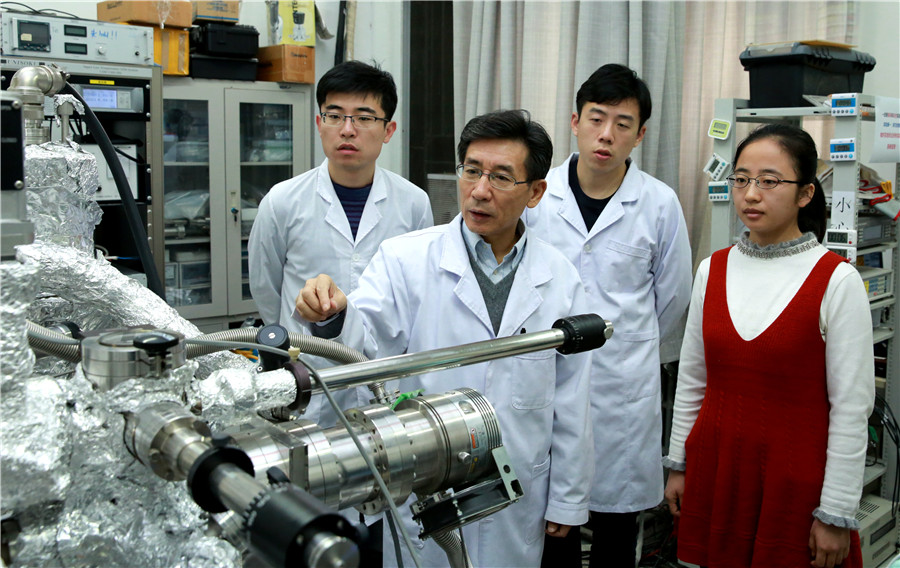Scientists investigate new ways of helping computers to keep their cool


Exotic materials
According to Xue, understanding the elusive quantum anomalous Hall effect is like unpacking a Russian nesting doll; one must slowly take apart each layer of concepts before tackling the core idea and appreciating its true significance.
A good starting point is the Hall effect, discovered in 1879 by Edwin Hall, a physicist from the United States. It states that electrons moving in a conductor can also move transversely when a magnetic field is applied perpendicular to the direction of the electric current.
This phenomenon is now widely used in a range of gadgets and everyday devices, from auto ignitions and speedometers to computer keyboards and factory robots.
More than a century after Hall's discovery, scientists found a new version of the effect that can be applied at the quantum level, hence the name quantum Hall effect.
Apart from helping its discoverer, Klaus von Klitzing, to win the Nobel Prize in 1985, the effect also led to the 2006 discovery of topological insulators - strange materials that can conduct electricity on their external surfaces, but not those inside.
Scientists hope these exotic materials may eventually lead to faster, more efficient computer chips, or even more-stable and powerful quantum computers. The materials are already being used as virtual laboratories to test predictions about undiscovered states of matter and the laws of physics.
However, they often require a number of extreme lab conditions to function, such as a very strong magnetic field and temperatures close to absolute zero, or -273 C, and the harsh conditions severely limit their practicality.
"The most beautiful part of the quantum anomalous Hall effect is that it can produce the same features as the quantum Hall effect without the need for a strong external magnetic field," said Lyu Li, Xue's colleague and a researcher at the Institute of Physics at the CAS.
As a result, the quantum anomalous Hall effect eliminates one of the biggest obstacles preventing the new materials from revolutionizing electronic engineering, such as creating the next generation of energy-efficient transistors for electronics, Lyu said.
Game changing
Anyone who owns a mobile phone or laptop may find their machine giving off heat after prolonged use. This can lead to a range of issues, from sweaty fingerprints to a catastrophic system meltdown.
Overheating is the single largest obstacle to the development of computers, because circuits are becoming smaller and more densely packed. That means engineers have to use various methods, such as internal fans or pumping cooling water, to keep the circuits from overheating.
"Fundamentally speaking, our computers overheat and slow down because the electrons in their circuits are moving without specific paths and are constantly bumping into obstacles, wasting energy and giving off heat in the process," Xue said.
"It's like driving a car through a chaotic and crowded market. However, in the quantum anomalous Hall state, electrons move like cars on a highway - they can travel smoothly without much resistance and are mutually undisturbed."
If the quantum anomalous Hall effect is applied to mobile phones or computer circuits, "it significantly reduces heat dissipation and makes the machine safer, faster and more compact", he added.
- China launches new AI model for agriculture
- China introduces national standard for valuing terrestrial ecosystems
- Government agencies announce regulations of online hiring information
- Ministry pledges to continue solid waste disposal crackdown
- Shandong upgrades ancient canal shipping with smart tech and cleaner ships
- Night view of Central Street in Harbin





































